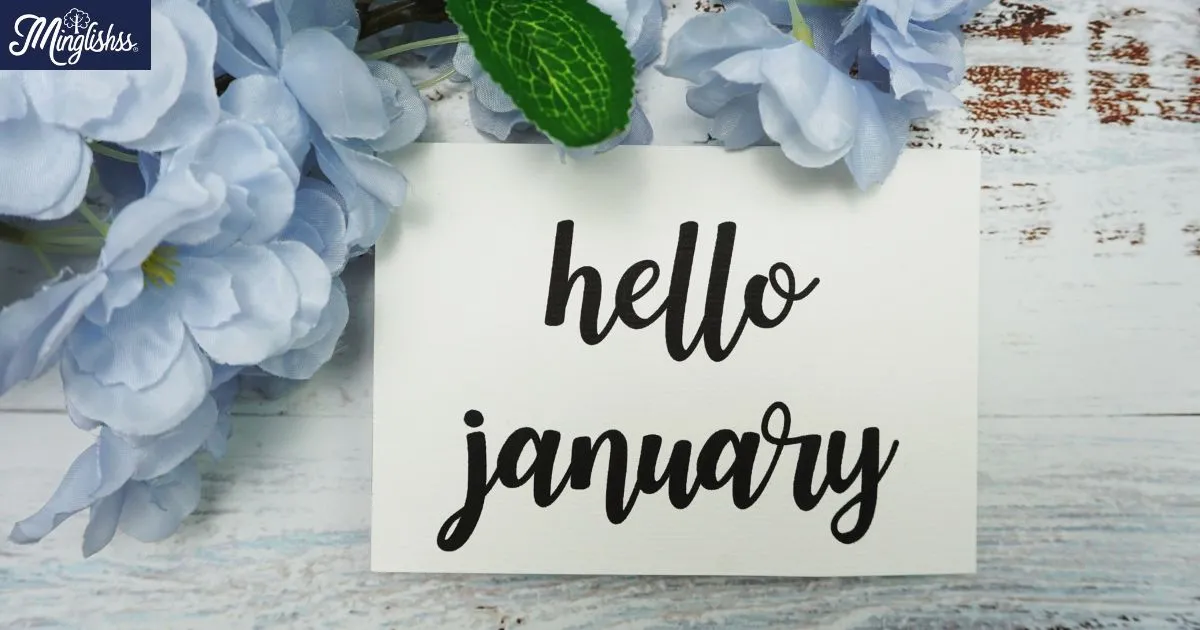“Master the correct usage of in January and avoid common mistakes like saying at January with this easy-to-follow grammar guide!”
When it comes to using prepositions in English, many learners get confused about which one to use with months, especially when it involves time expressions like January. You might be asking yourself: “Is it at January or in January?” In this blog post, we will explain the correct grammar rule behind these commonly misused prepositions. By understanding the difference, you can sound more natural and precise when talking about time.
Prepositions like in and at can be tricky, especially when they are used in the context of time. Even native speakers sometimes struggle with them. If you are learning English or want to improve your grammar skills, this article will help clear up the confusion. Let’s dive into the details, step by step, so you can feel confident about using these prepositions correctly in sentences involving January.
In this blog, you’ll find a thorough explanation of why “at January” is incorrect and how “in January” is the correct choice. We’ll also provide you with clear examples to help reinforce the rule and avoid common mistakes. By the end of this post, you will have a better understanding of when and how to use in and at in time expressions, especially with months like January. Let’s get started!
Are you ready to master your understanding of prepositions? Don’t let confusion about in and at stop you from speaking fluently. Continue reading to learn the important distinctions and avoid the common pitfalls that many English learners face!
In English, prepositions are essential for expressing time, location, and other relationships. The confusion often arises when we talk about months, such as January, and wonder whether to use at or in. While both prepositions are used to refer to time, in is the proper choice for months and long periods, while at is used for specific moments or places. So, we should always say “in January,” not “at January.”
Common Prepositions Used with Time
Understanding Prepositions in Time Expressions
Prepositions like in, at, and on are frequently used when discussing time. These small words play a crucial role in determining the meaning of a sentence. Here’s a breakdown of how each preposition is commonly used in relation to time:
- In: This is used for longer periods such as months, years, seasons, and centuries.
- At: This is used for specific times or moments.
- On: This is used for specific days and dates.
For example:
- I will visit you in July. (Correct)
- The concert is at 7 p.m. tonight. (Correct)
- My birthday is on Tuesday. (Correct)
Examples
- In January
- “She plans to travel in January.”

- “We’ll have the meeting in January.”
- “I will start the new project in January.”
- At 10 o’clock
- “I’ll see you at 10 o’clock.”
- “The bus arrives at 5 p.m.”
- “We have a class at 9 a.m.”
Other Ways to Reply to “Happy Christmas Eve” Messages
The Correct Usage of “In January”
Definition of “In”
The preposition in is used when referring to months, seasons, years, and other larger time periods. It indicates a general time frame within which an event or action occurs.
For example:
- She will visit us in January.
- The movie is scheduled to release in January.
- In January, we plan to launch the new marketing campaign.
Grammar Rules for Using “In”
There are some simple rules to follow when using in:
- Use in with months, such as in January.
- Use in for seasons, like in summer.
- Use in for years or decades, such as in 2020.
Examples
- “He will come in January.”
- “The project starts in January.”
- “The weather is cold in January.”
Common Mistakes to Avoid
Why “At January” Is Incorrect

Many learners mistakenly say “at January,” but this is grammatically incorrect. This happens because at is used for specific points in time, such as exact hours or specific moments, not for general months.
Explanation of Incorrect Usage
Using at before months, like at January, doesn’t align with standard English grammar rules. The correct preposition for months, such as January, is in.
Common Mistakes with “At January”
- Incorrect: We are planning the event at January. Correct: We are planning the event in January.
- Incorrect: I will start working at January. Correct: I will start working in January.
- Incorrect: My birthday is at January. Correct: My birthday is in January.
Why Using “At January” Doesn’t Work
Using at January doesn’t work because at is reserved for specific times or precise moments, such as hours or dates. January is a general time period, and in is used to denote months, seasons, and years.
Common Contexts for Time Expressions
Using “In” for Extended Periods
In is ideal when talking about extended periods such as months, years, or centuries. These timeframes are general and broad, so in is the appropriate preposition.
Examples
- “He was born in January.”
- “We met in 2020.”
- “The company was founded in the 21st century.”
Using “On” for Specific Days and Dates
On the other hand, on is used for specific days, like Monday, or specific dates, like the 15th of January.
Examples
- “The meeting is on Monday.”
- “His birthday is on the 1st of January.”
- “We will meet on Christmas Day.”
Using “At” for Precise Times
At is used for specific times, like 5 p.m., noon, or midnight.
Examples
- “The flight departs at 3 p.m.”
- “We will start at noon.”
- “The train arrives at midnight.”
Other Ways To Say Happy New Year Wishes
Exceptions and Special Cases
Fixed Expressions
Some expressions use prepositions in a specific way, such as “at night” or “in the morning.”
Regional Variations
In some regions, there might be small differences in how people use prepositions, but the general rule remains the same: use in for months.
Practical Tips for Avoiding Mistakes
Check for Consistency
Make sure to use in when referring to months. Check your sentences for consistency and always prefer in January, not at January.
Proofreading
Before finalizing your writing, proofread to catch any errors with prepositions. This will help you avoid common mistakes and improve your overall grammar.
Key Insight
Is it “at January” or “in January”?
It’s always “in January” because in is used with months.
Can I say “at January 1st”?
No, you should say “on January 1st” because specific dates require on.
Why can’t I use “at January”?
“At” is for specific times or moments, while in is for general periods like months.
When do I use “at” with time?
Use “at” for exact times, like at 10 o’clock or at noon.
What about “in” for years or seasons?
Yes, use in for years and seasons, such as in 2020 or in summer.
Conclusion
In conclusion, in January is the correct preposition to use when referring to the month of January, as well as other months, years, and seasons. Avoid common mistakes like using at January, and remember to use in when talking about broad time periods.
Prepositions can be tricky, but with practice and understanding, you can master them. Keep this rule in mind, and your English grammar will sound much more natural and accurate!

Hi, I’m Isabel: I’m passionate about turning language learning into a fun adventure. I believe in making every word exciting and memorable.










